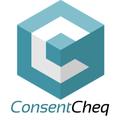
LokkaRoom
LokkaRoom is a digital sporting event engagement platform designed to revolutionize and enhance fan engagement across the global sports industry. Developed by TMA Sport and built on the Hedera Hashgraph network, it provides a centralized and secure ecosystem where sports organizations, clubs, athletes, sponsors, and fans can connect and interact.
The platform leverages Web3 technologies to offer a range of digital experiences, including event ticketing, exclusive memberships, digital collectible non-fungible tokens (NFTs), merchandise sales, live voting and polling, and access to unique branded content.
LokkaRoom aims to deepen the connection between fans and their sporting heroes by enabling more meaningful and rewarding interactions. For clubs and athletes, it offers new avenues for sustainable revenue generation, brand building, and direct engagement with their supporter base.
It utilizes unique FIAT-backed tokens for in-platform transactions, making the platform secure and accessible for all fans and features partnerships with numerous organizations including the MK Breakers, Manchester Giants, and Derby Trailblazers basketball clubs.
Project Information
Related Projects

ConsentCheq, a service by PrivacyCheq, is a consent management platform that helps businesses comply with global privacy regulations such as GDPR, CCPA, and COPPA. Since its launch in 2016, the company has focused on providing a "single source of truth" for user consent, enabling enterprises to manage and honor user privacy preferences in real-time across all their systems.
The core of ConsentCheq's service is a full-stack transparency and consent management solution. It provides tools for businesses to deliver clear privacy notices and to capture, log, and manage user consent for data collection and processing. A key feature is the "Consent Dashboard," a centralised interface where users can view and control their privacy settings for any business that uses the ConsentCheq service. The platform also offers "Consentive," an incentive-based system where consumers can be rewarded with micropayments for granting consent, which is designed to increase opt-in rates for data processing.
ConsentCheq's connection to the Hedera network is central to its "Consentive" service. The platform uses the Hedera Consensus Service (HCS) to create a high-throughput, low-cost, and auditable log of consent verification and payment events. Under privacy laws, advertising networks must verify consumer consent each time they process or track them.

Clout.art is a creator economy platform, founded in 2021. Its mission is to bridge the gap between Web2 social media and the Web3 world through the creation of a sustainable and transparent ecosystem that empowers content creators to monetise their most valuable social media content as unique digital assets.
The platform's core service is an NFT minting and marketplace solution. It allows creators to take their most successful social media posts, such as those from Instagram, and transform them into non-fungible tokens (NFTs). This provides a direct way for creators to capitalize on their existing digital footprint and for fans to own a piece of their favorite creator's content. The Clout.art ecosystem also includes a social token, $SWAY, which enables fans to stake with their favorite creators in "creator pools." When a creator sells an NFT, a portion of the proceeds is distributed to those who have staked in their pool, creating a mutually beneficial relationship.

SaucerSwap is a decentralized exchange (DEX) and automated market maker (AMM) protocol built on the Hedera blockchain network. It provides permissionless swapping services for Hedera Token Service (HTS) tokens.
The platform allows users to trade between Hedera-based assets and enables users to become liquidity providers by depositing HTS tokens into liquidity pools where they earn a share of the trading fees generated by those pools. Additionally, it offers yield farming programs which allow liquidity providers to stake LP tokens for further rewards.
SaucerSwap has its own native asset, the SAUCE token, which is used for platform governance through a decentralized autonomous organization (DAO) as well as for staking and incentivizing liquidity. The platform aims to be a foundational component of the DeFi landscape on Hedera by providing essential infrastructure for token exchange and liquidity services to the network's users and developers. It also prioritizes user and network security through decentralized management and third-party security audits for smart contracts.

Agryo is a global financial technology (AgriFintech) company that operates as a risk intelligence platform for the agricultural sector. Its core mission is to solve critical challenges in agricultural finance by providing data-driven risk analysis, which helps de-risk farming operations and facilitates access to credit and insurance for farmers, particularly small and medium-sized producers.
The platform leverages advanced technologies, including artificial intelligence and satellite imagery analysis, to process over 500 different data variables for any given crop field. This comprehensive analysis generates a dynamic risk score and a "digital twin" of the farm, offering lenders and insurers a clear, data-backed understanding of the operation's viability and potential yield.
Agryo is built on the Hedera network. The platform uses the Hedera Consensus Service (HCS) to create an immutable and publicly auditable log of its risk assessments and crop monitoring reports. By anchoring these critical data points to the Hedera public ledger, Agryo provides financial institutions with verifiable proof that the information they are using for underwriting decisions is authentic and has not been tampered with, fostering greater confidence and unlocking capital for farmers worldwide.
